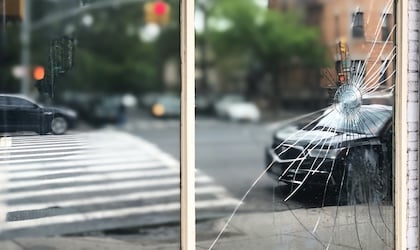I have always been racially ambiguous. Because I am able to “pass” as white, I have been the recipient of white privilege throughout my life and consequently, my career. Despite my South Asian heritage, I benefit from a system intrinsically created to benefit the lives of white people.
Privilege can be a difficult concept to define and understand. While recent events have illuminated the many cracks in what has always been a flawed system, many still find it uncomfortable to talk about racial inequality. But, I believe that hard conversations are typically the ones worth having. “White privilege” is invisible to many, and often associated with affluence. Affluence may indeed pertain to some forms of privilege, but relating affluence and privilege as synonymous can be dangerously surface-level in the face of a very complex societal issue.
Talking About What Privilege Means
The Black Lives Matter movement and issues surrounding Canadian residential schools have shone a spotlight on the many challenges indigenous populations, people of colour, and minority groups face everyday. In 2020, as these events continually sparked worldwide conversations, the Ontario Trial Lawyers Association (OTLA) assembled a panel where lawyers who identify as BIPOC – myself included – discussed our experiences in the Ontario legal system. This was a historic initiative from what has traditionally been a fairly conservative organization.
White privilege can be defined as the built-in advantage of having greater access to power and resources than people of colour in the same situation. White privilege is continually reinforced systematically, substantiated by enduring biases and racism. Systemic racism is an intricate form of racism that is embedded in the everyday function of our society; the issue of white privilege continues to endure due to these institutional, historical, and cultural systems.
Discussing white privilege can be challenging when those who are white do not feel privileged, especially if they come from financially difficult circumstances. But as I mentioned earlier, this is not a conversation singularly centred around affluence. The ideas surrounding white privilege run far deeper than that.
Different Starting Lines, Same Race
I liken white privilege to participating in a race with different starting lines.
Runners who are white, as well as those like myself who look white, start the race much closer to the finish line. The path forward is clear – we’re met with even terrain, we have proper running shoes, and are even provided with water during break intervals. We’re given the tools we need to succeed by a system created to benefit us.
In contrast, people of colour find themselves participating in the same race, with a starting line distanced much farther from the finish line. As they continue to race, they may encounter unforeseen obstacles – hurdles to jump, and other roadblocks to avoid. Perhaps there are potholes. Maybe some muddy terrain. There is no water during their break intervals.
These obstacles can be defined by the significant life barriers white people never have to face. These disadvantages may seem trivial, or imperceptible even, but there is no doubt that they exist. Though a person without privilege may invest the same amount of effort as a person with privilege, the disadvantaged group always seems to encounter more challenges, facing greater resistance. If they should hope to reach the same destination as those who are privileged, they have to work that much harder.
As someone who benefits from this system, I’ll admit that I too find it difficult to talk about race and privilege. However, in witnessing the challenges my family and community face, not to mention those met by my clients from marginalized backgrounds, I am aware of the unique opportunity I have to share my thoughts and experiences as a legal professional.
Staying comfortable is no longer an option. To be a true advocate for my clients, I must speak up on their behalf.
The Right Thing to Do
“How many different fathers do your children have?”
Can you imagine a question like that being thrown at you during a case? The sad reality is that it is exactly what was asked of a black, single mother of three, whom I was defending in a personal liability case.
The question, raised during a discovery, had nothing to do with the case. And while calling out opposing counsel for racial bias was uncomfortable, it was absolutely necessary.
During another case, my client insisted that the police had misrepresented his version of events in their report.
“Why would that happen?” I recall asking him.
“Why would it not? Look at me. I’m as black as black comes,” he said to me. “I have dreadlocks. I’ve been pulled over by the police probably 15 to 20 times in the past two years for random checks.” This was a clear case of my client’s appearance informing a biased expectation of his behaviour. He told me that police officers never listened to him. As these actions point towards a clear show of racism, I raised the issue in my opening statement at the mediation. It was the right thing to do, swiftly settling the file in my client’s favour.
Small Behaviours Create Large Consequences
Pulling over a driver who is going about his daily routine may seem minor. A question seeking to discredit a plaintiff may appear insignificant. These actions may seem trivial, but what we need to realize is that these microaggressions reinforce the foundation of our flawed system. White privilege undoubtedly bleeds into every aspect of our society. Oftentimes, we aren’t aware of how this may manifest, but various statistics can illustrate the inherent biases present today. In our next piece covering racism in Ontario’s legal system, we will address these staggering statistics.
As officers of the court and as members of society, we have to recognize that systemic racism and white privilege are complex issues we can no longer afford to ignore. And by interrogating our own behaviours for bias and speaking up to protect the vulnerable, we have the power to make a difference.
Read more about addressing racism in Ontario’s legal system in our blog series.










